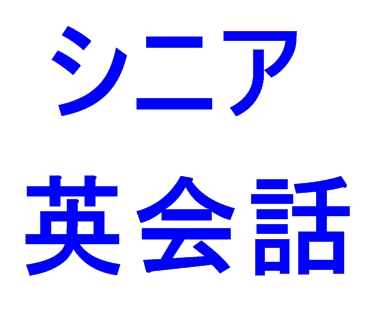全音声
まず音声だけを聞いてください。もし聞き取れない場合は英語力の問題ではなく、その英語の音を覚えていないだけです。これから個別に音を真似て、その音と意味を覚えていきます。
これから対話集を覚えていくと確実に英語の聞き取れる表現が増えてきます。
全英文
分からない単語があったらタップ(クリック)してネット辞書で調べてください。和訳が分からない場合は次の和訳を参照してください。
Peter: So Sarah, tell me, you’re teaching right now, could you give me your opinion on computer use in the classroom, like using it in your classes, what do you think about that?
Sarah: I think it’s good when there’s certain activities that are related to using computers.
But when you’re trying to do an activity that’s not on a computer in a classroom that has computers, it’s very difficult to get your students’ attention because they’re often distracted by doing something else on the internet, they shouldn’t be doing.
Peter: Oh, I totally agree, I often have that problem, it feels like I’m speaking to a crowd of ghosts. I have no idea that they’re talking to me or looking at me or doing anything that they should be doing, so it’s really hard. I find it really hard.
But I agree also, I think computers can be so useful in the classroom, especially if you have to do a specific activity where students have to find information and listening activities where they can listen to individual listenings and things like that, you know.
Sarah: Yeah. So what do you think about cell phones in the classroom, do you let your students use them? Because maybe they have an electronic dictionary of some sort on their mobile phone. So is that okay, or no cell phones, what do you do?
Peter: Ah, that’s a frustrating topic.
I think sometimes I find it really useful if students have their smart-phones with them and they can do a quick online search of something that they want to do, especially words they want to look up.
So the dictionary use I think is quite useful for students.
But on the other hand I always have to kind of keep a watchful eye and see what students exactly are up to, you know, they sometimes start playing a game or they sit on Facebook and sit writing notes to their friends and messages come and go.
So yeah, I’m always not sure exactly how to handle it, but most of the time my students are pretty good. So they seem to use it mostly for dictionary.
Sarah: Oh, that’s good, yeah.
Peter: Yeah. How about your students?
Sarah: Yeah, some of my students use it for … they have a dictionary on there that they use. But I think though, most of them have a separate electronic dictionary that’s only a dictionary.
And I much prefer it when they use that because then I know they are really just looking at a word and not on Facebook or doing something else like you just mentioned, so.
Peter: Have you ever taken cell phones away in class from students?
Sarah: No, not yet, I haven’t had to, usually when I walk around the room they put it away very quickly if they are doing something they are not supposed to be doing.
And if they are using it to look up a word then they have no problem with me seeing what they are doing, so, end of class.
Peter: I heard about a teacher the other day, he said he’s got a basket that he collects cell phones with at the beginning of class, and he puts them on his front desk and then at the end of class he gives them back.
But I thought, wow, that’s quite strict I thought. I don’t know if I would do that, how about you?
Sarah: Yeah. I would be worried that some students would forget their phones and then the problem with trying to get them their phone back and all of that, it might not be worth the hassle.
全和訳
ピーター:あのサラ、知りたいのですが、あなたは今教えていますね、教室でのコンピュータ使用に関して例えばあなたの教室で使うとかそれについて意見を聞かせてください、あなたはどう思いますか。
サラ:私はコンピュータを使う必要がある特定の作業ならよいと思います。しかしコンピュータに関係ない事をコンピュータのある教室でやろうとすると、生徒の注意を得ることは非常に難しくなります、それはやってはいけないインターネット上で何か他のものをして気が散るからです。
ピーター:私も完全に同意します、私もそれは問題で、時々無数の幽霊に話しているように感じます。
彼らが私と話しているか、私を見ているのか、すべき事をしているのか分からないので本当に難しいのです。私は本当にそれが難しいと思います。
しかし、私も同意しますが、コンピュータは授業で非常に役立と思います、特に授業の中で特に生徒が情報を見つける必要があるとか、リスニングの練習で個人のリスニングするとか、そのような事があるからです。
サラ:そうですね、教室で携帯電話はどう思いますか、あなたは生徒に使わせますか。多くの場合に彼らは移動電話等に何らかの電子辞書の類を持っています。携帯電話はOKですか、ダメですか、どうしますか。
ピーター:ああ、それは大変困る話題です。私はスマホが役に立つと思うのは、生徒がスマホを持っていて、何か探したい事をすぐにオンライン検索に使うとか、特に知りたい単語を調べるとかです。
辞書に使うなら生徒に有益だと思います。でも一方では私は常に生徒が何をしているか注意深く生徒を見る必要があります、知っているように生徒は時々ゲームをし始めたり、座ってフェイスブックや座って友人へノートを書いたり、メッセージを受けたり送ったりします。
私はどのようにそれを取り扱うべきかについてよくわかりません、しかし私の生徒はかなり良くやっています。彼らは多くの場合に辞書用に使っているようです。
サラ:ああ、それはよいですね。
ピーター:はい。あなたの生徒はどうですか。
サラ:はい、私の学生の何人かはそのように使っているようです。彼らの携帯の辞書を使っているようです。しかし、彼らのほとんどは別の辞書だけの電子辞書を持っています。
そして、それから私はそのよう使う方がずっと好きです、なぜならばそうすれば彼は実際には単語を探すために使っており、フェイスブックとかあなたが言ったような使い方をしていないのが分かるからです。
ピーター:あなたは、授業でこれまでに生徒から携帯電話を取り上げた事がありましたか。
サラ:まだありません、その必要がなかったのです、私が通常部屋を歩き回ると生徒がしてはいけないと思っている時彼らは直ぐにそれをしまいます。
そしてもし彼らが単語を調べるためにそれを使うならば、私が彼らがしている事を見たとしても彼らは授業の終わりまで問題はありません。
ピーター:私は先日ある先生の事を聞かされました、その先生はバスケットを持っていて、始める前に携帯電話を集めにフロント・デスクに置きます、そしてクラス終了後に返すそうです。
私は非常に厳しいと思いましたが、私は分かりません。あなたはどう思いますか。
サラ:はい。一部の学生が彼らの電話を忘れ、それから彼らの電話を返すのが問題になると私は心配します、それは手間ほど価値がないかも知れません。
